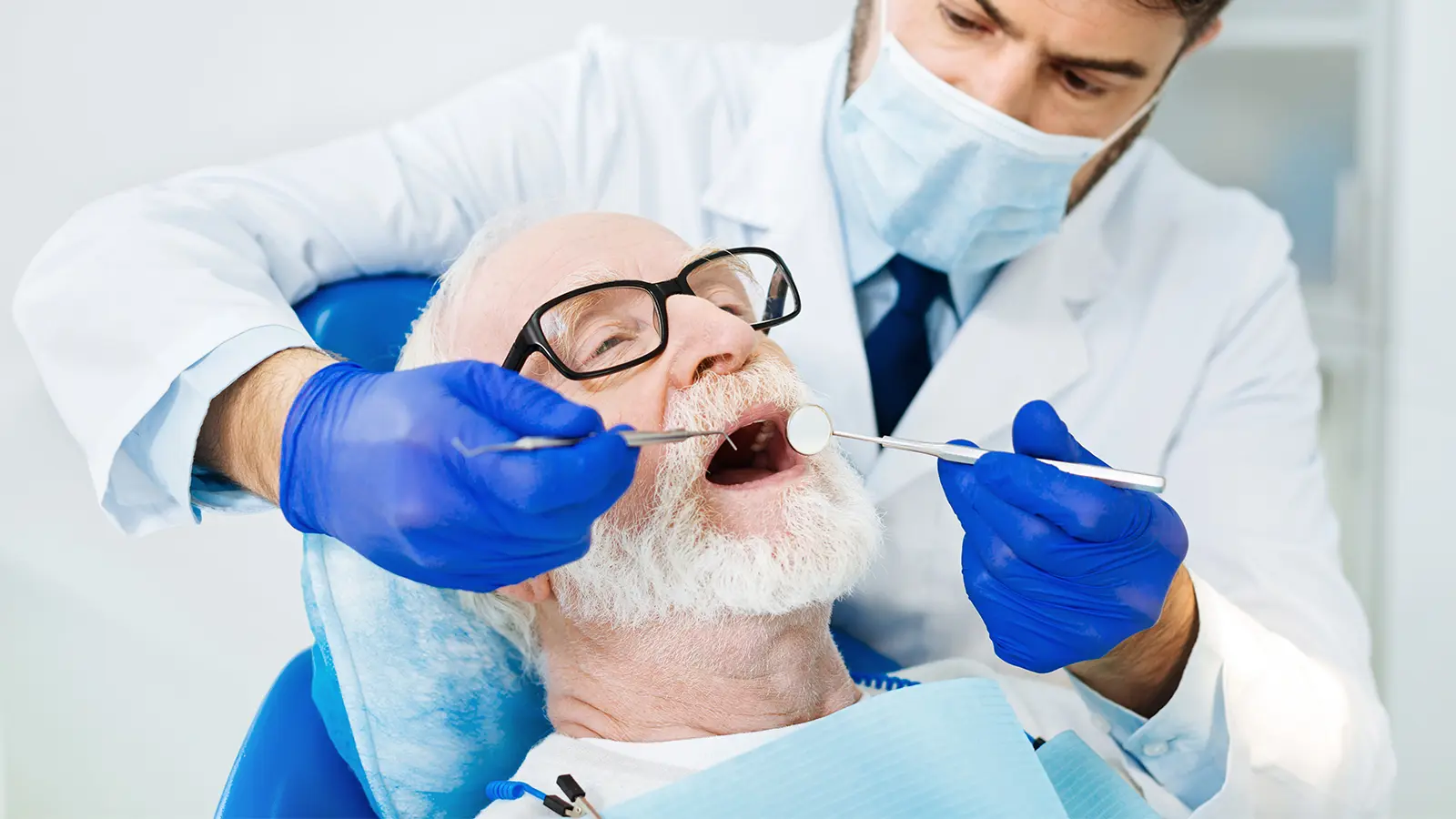Reviewed By Dr. Jeffery Kesecker, DDS
Reading Time: 4 minutes
Temporary tooth replacements play an important role in helping you feel comfortable and confident throughout your dental implant treatment. While dental flippers are a popular option, many patients find them awkward to wear or difficult to keep in place.
Depending on your treatment plan, you may need a temporary option while you wait to have your implant placed or while the implant heals and bonds with the bone.
This guide will walk you through alternatives to dental flippers, so you can choose the approach that fits your smile and your lifestyle.
Legacy Surgery offers dental implants in Harrisonburg and Staunton, VA.
Table of Contents
Key Takeaway
Dental flipper alternatives like Essix retainers, Maryland bridges, and partial dentures provide more comfort, stability, and aesthetic appeal while your dental implant heals.
What Is a Dental Flipper?
A dental flipper is a removable acrylic prosthetic that holds one or more artificial teeth to fill a gap after an extraction. It stays in place by fitting snugly against your gum ridge or the roof of your mouth, creating light suction and friction for stability. Dental flippers serve as a temporary replacement while your implant integrates with the bone.
Oral surgeons often recommend flipper teeth for several reasons:
- To fill the gap left by a missing tooth, especially in the front of your mouth
- To help you speak clearly and chew more easily while you heal
- To maintain the appearance of your smile until a permanent replacement is ready
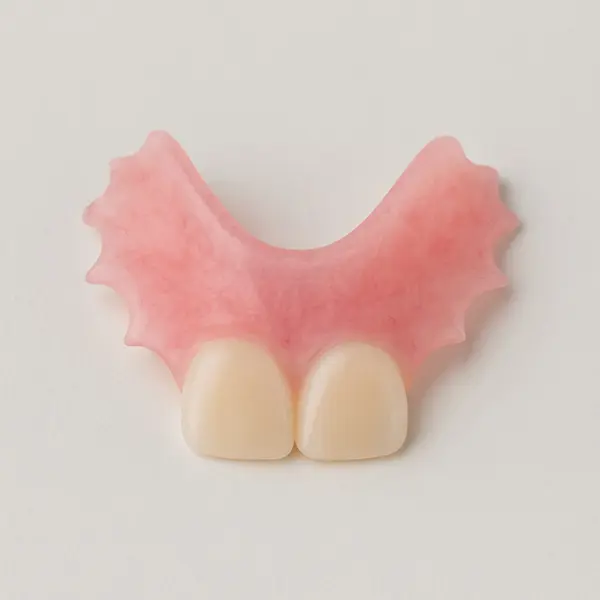
Flipper Limitations
While convenient, flipper teeth are not ideal for long-term oral health management:
- Fragile build: Flipper teeth are made from lightweight acrylic that can easily crack under pressure or break during daily use.
- Unstable fit: The appliance may shift out of place while talking or chewing, which can lead to discomfort and interfere with speech clarity.
- Irritation and hygiene issues: Prolonged use can cause sore spots on the gums and make it more difficult to maintain proper oral hygiene.
If you want a more secure and comfortable solution during implant healing, consider these 4 dental flipper alternatives.
4 Dental Flipper Alternatives
There are several ways to temporarily restore your smile while your dental implant integrates with the bone, and each option comes with its own benefits and tradeoffs.
1. Skip the Temporary Tooth
Some patients choose to go without a temporary tooth, especially if the missing tooth is not in a visible area.
Pros:
- No interference with healing
- No risk of irritation from removable appliances
Cons:
- Visible gap may affect confidence or speech clarity
This option works best if the extracted tooth is not in the smile zone.
2. Essix Retainer With Built-In Tooth
This removable clear tray, also called an Essix style retainer, includes a composite resin prosthetic tooth to fill the space.
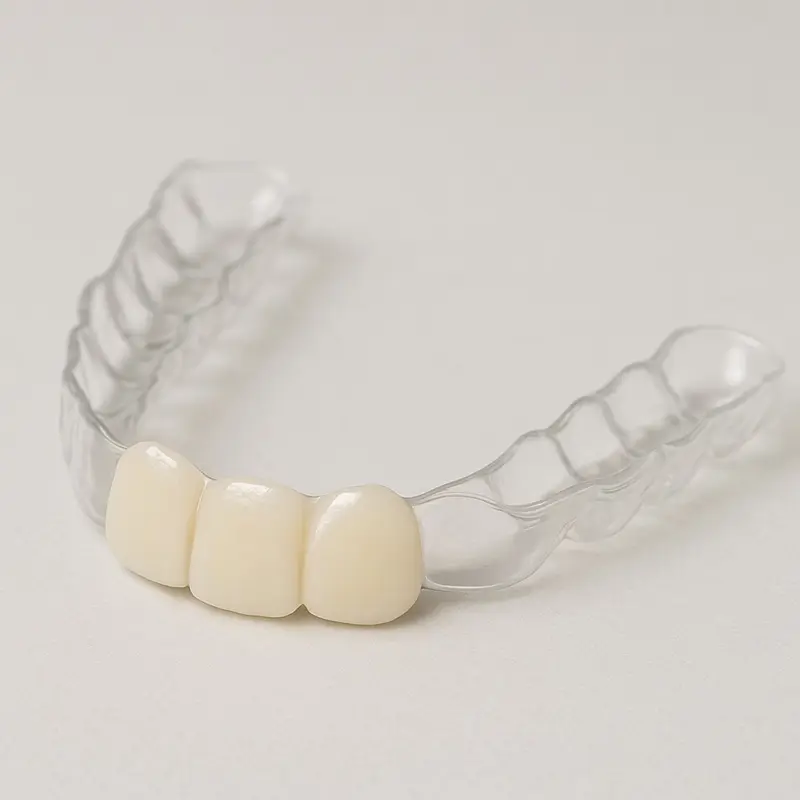
Pros:
- Nearly invisible
- Better comfort and aesthetics than traditional flippers
- Helps protect adjacent teeth
Cons:
- Must be removed while eating or drinking anything but water
This flexible partial denture alternative offers a discreet, short-term solution.
3. Temporary Maryland Bridge
Maryland bridges are resin-bonded and use small “wings” attached to adjacent teeth to support a prosthetic tooth. This type of fixed partial denture offers a conservative, non-invasive option.
Pros:
- Fixed in place, so no shifting during speech or meals
- Offers natural aesthetics for visible teeth
Cons:
- May loosen over time
- Not ideal for strong bite forces
Maryland bridges provide a stable, discreet option until your permanent restoration is placed.
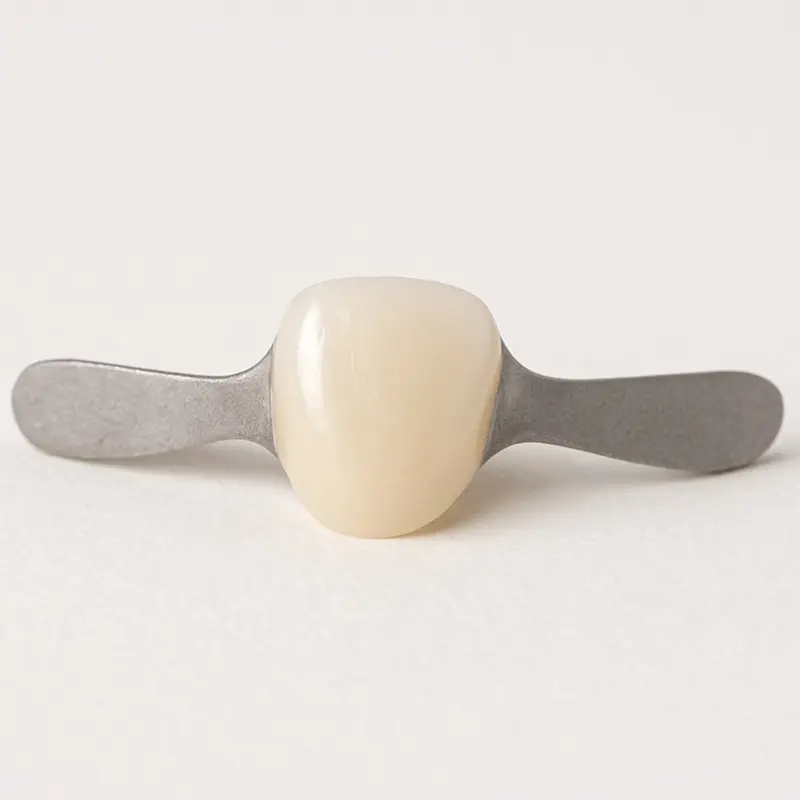
4. Acrylic Partial Denture (Stayplate)
This type of removable prosthetic resembles a flipper but is more durable. It can replace multiple teeth and is made of acrylic with optional metal clasps.
Pros:
- Can support several missing teeth
- Cost-effective option compared to fixed dental bridges
Cons:
- Still removable
- May require adjustments for better fit and comfort
Acrylic partial dentures are a practical choice for short-term function and support during dental implant recovery.
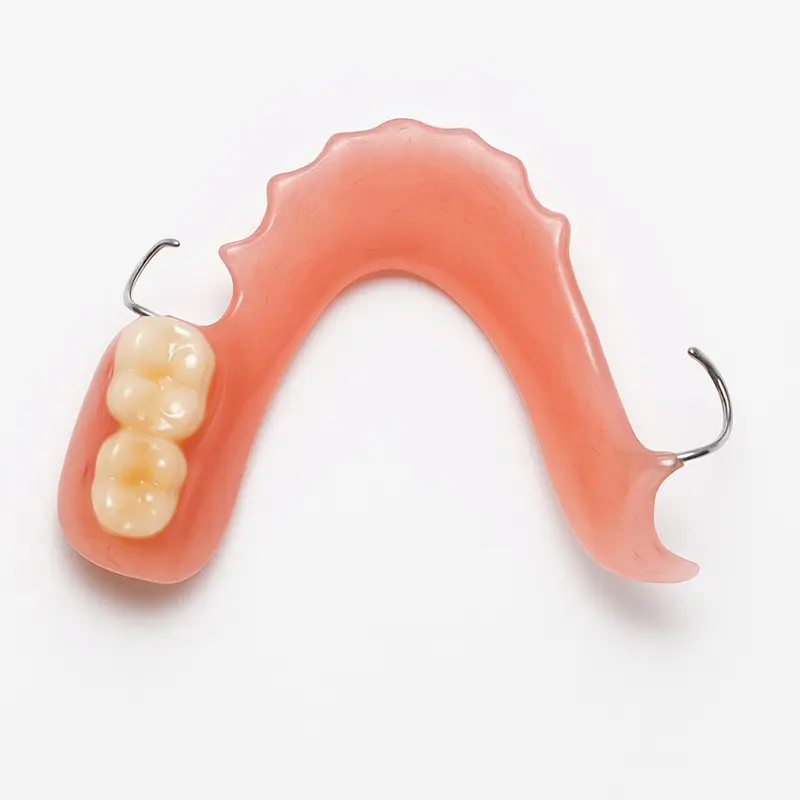
Choosing the Right Option
There is no one-size-fits-all solution. The right option depends on what feels comfortable and practical for you. Think about:
- Where the gap is: If it shows when you smile, you may want something that blends in seamlessly.
- How secure it feels: Some people prefer a fixed piece that does not move, while others like the flexibility of something removable.
- Your budget and timeline: Certain temporary options can transition easily into your final restoration plan.
- Ease of care: Look for a solution that supports good oral hygiene and keeps your gums healthy as you heal.
We will discuss each option with you before your dental implant surgery, so you feel confident and prepared every step of the way.
| Why Patients Choose Legacy Surgery Legacy Surgery is led by board-certified oral surgeon Dr. Jeffery Kesecker, who specializes in dental implants and surgical tooth replacement. Our practice provides advanced options such as All-on-4® implants, bone grafting, sinus lifts, and sedation dentistry. We use 3D imaging and guided technology for precise care, and every treatment plan is personalized so you feel comfortable and supported from start to finish. |
Schedule Your Dental Implant Consultation in Harrisonburg, VA
If you are considering dental implants, call our Harrisonburg office at (540) 437-1230 or visit us at 2071 Pro Pointe Lane to schedule your consultation with Dr. Jeffery Kesecker. We look forward to helping you restore your smile with expert care.
To book an appointment at our Harrisonburg location, call (540) 437-1230 or visit us at 2071 Pro Pointe Lane, Harrisonburg, VA.
📍Other location
(540) 213-8750

